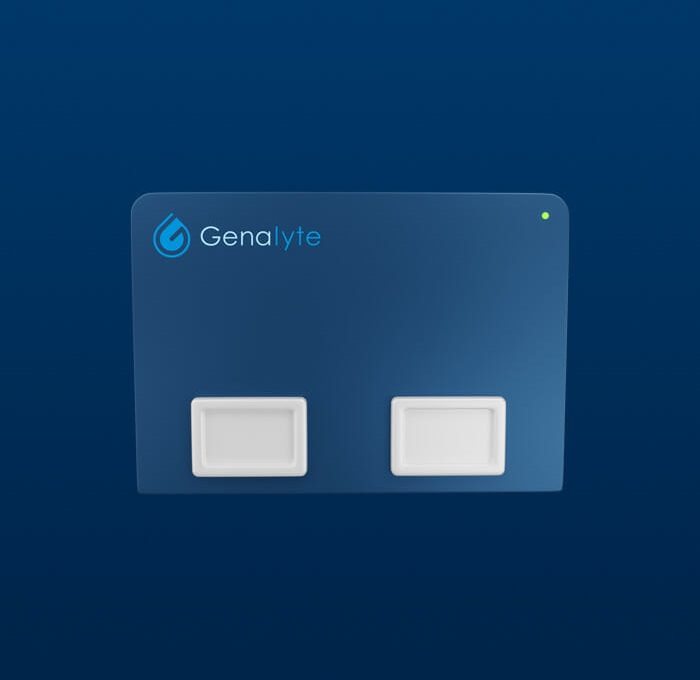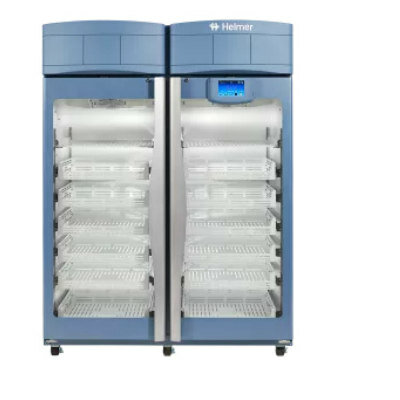Silicon Chip Based Blood Test Rapidly Diagnoses Patients with Hypothyroidism
|
By HospiMedica International staff writers Posted on 29 Jul 2024 |

Hypothyroidism impacts about 10% of the U.S. population, making the Thyroid Stimulating Hormone (TSH) test the most frequently conducted immunoassay in the United States. Traditional testing often involves significant time commitments for patients, including visits to labs and waiting 2 to 5 days for results. Now, a new TSH immunoassay performed on a silicon chip delivers results in approximately 30 minutes.
Genalyte (San Diego, CA, USA) has received U.S. Food and Drug Administration (FDA) approval for its groundbreaking immunoassay, the first of its kind to be cleared for use on a silicon chip-based device. The Maverick Diagnostic System (MDS) incorporates silicon chip-based photonic ring resonator technology, enabling the execution of multiple rapid tests simultaneously from a small sample of whole blood or serum. This system is also connected to the cloud, facilitating the retrieval of assay protocols and enabling clinical oversight. Genalyte’s innovation effectively minimizes the traditional bulky lab machinery to 3% of its original size while still delivering lab-quality results.
The compact Maverick Diagnostic System, comparable in size to a small microwave and weighing just 30 pounds, offers lab-quality results on-site, representing a significant shift in laboratory processing much like the transformation brought by silicon chips in computing. This technology promises to significantly reduce the turnaround time for lab results by 98%, potentially making it available at point-of-care locations in the future. This FDA clearance not only marks a critical achievement for Genalyte but also for the diagnostic industry, confirming the company’s capability to deliver precise and rapid lab results.
“This TSH assay is a powerful tool to rapidly diagnose patients and get them on a path to treatment quicker,” said CEO of Genalyte Ashraf Hanna, Ph.D., M.D. “This technology is groundbreaking for immunoassay development which hasn’t changed conceptually since 1959. The Maverick has the potential to allow a broad menu of blood testing in a small, portable device at the point of care.”
Related Links:
Genalyte
Latest Point of Care News
Channels
Critical Care
view channel
Ingestible Smart Capsule for Chemical Sensing in the Gut Moves Closer to Market
Intestinal gases are associated with several health conditions, including colon cancer, irritable bowel syndrome, and inflammatory bowel disease, and they have the potential to serve as crucial biomarkers... Read moreNovel Cannula Delivery System Enables Targeted Delivery of Imaging Agents and Drugs
Multiphoton microscopy has become an invaluable tool in neuroscience, allowing researchers to observe brain activity in real time with high-resolution imaging. A crucial aspect of many multiphoton microscopy... Read more
Novel Intrabronchial Method Delivers Cell Therapies in Critically Ill Patients on External Lung Support
Until now, administering cell therapies to patients on extracorporeal membrane oxygenation (ECMO)—a life-support system typically used for severe lung failure—has been nearly impossible.... Read moreSurgical Techniques
view channel
Pioneering Sutureless Coronary Bypass Technology to Eliminate Open-Chest Procedures
In patients with coronary artery disease, certain blood vessels may be narrowed or blocked, requiring a stent or a bypass (also known as diversion) to restore blood flow to the heart. Bypass surgeries... Read more
Intravascular Imaging for Guiding Stent Implantation Ensures Safer Stenting Procedures
Patients diagnosed with coronary artery disease, which is caused by plaque accumulation within the arteries leading to chest pain, shortness of breath, and potential heart attacks, frequently undergo percutaneous... Read more
World's First AI Surgical Guidance Platform Allows Surgeons to Measure Success in Real-Time
Surgeons have always faced challenges in measuring their progress toward surgical goals during procedures. Traditionally, obtaining measurements required stepping out of the sterile environment to perform... Read morePatient Care
view channel
Portable Biosensor Platform to Reduce Hospital-Acquired Infections
Approximately 4 million patients in the European Union acquire healthcare-associated infections (HAIs) or nosocomial infections each year, with around 37,000 deaths directly resulting from these infections,... Read moreFirst-Of-Its-Kind Portable Germicidal Light Technology Disinfects High-Touch Clinical Surfaces in Seconds
Reducing healthcare-acquired infections (HAIs) remains a pressing issue within global healthcare systems. In the United States alone, 1.7 million patients contract HAIs annually, leading to approximately... Read more
Surgical Capacity Optimization Solution Helps Hospitals Boost OR Utilization
An innovative solution has the capability to transform surgical capacity utilization by targeting the root cause of surgical block time inefficiencies. Fujitsu Limited’s (Tokyo, Japan) Surgical Capacity... Read more
Game-Changing Innovation in Surgical Instrument Sterilization Significantly Improves OR Throughput
A groundbreaking innovation enables hospitals to significantly improve instrument processing time and throughput in operating rooms (ORs) and sterile processing departments. Turbett Surgical, Inc.... Read moreHealth IT
view channel
Printable Molecule-Selective Nanoparticles Enable Mass Production of Wearable Biosensors
The future of medicine is likely to focus on the personalization of healthcare—understanding exactly what an individual requires and delivering the appropriate combination of nutrients, metabolites, and... Read more
Smartwatches Could Detect Congestive Heart Failure
Diagnosing congestive heart failure (CHF) typically requires expensive and time-consuming imaging techniques like echocardiography, also known as cardiac ultrasound. Previously, detecting CHF by analyzing... Read moreBusiness
view channel
Expanded Collaboration to Transform OR Technology Through AI and Automation
The expansion of an existing collaboration between three leading companies aims to develop artificial intelligence (AI)-driven solutions for smart operating rooms with sophisticated monitoring and automation.... Read more

















